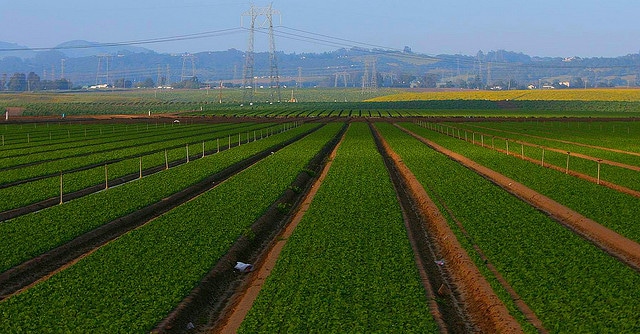The existence of market failure is not necessary for aid to be declared compatible under Article 107(3). Market failure does not mean that the market is completely unable to supply a good or service. State aid aiming to remedy market failure may be compatible with the internal market even if it has a negative impact on some market operators. […]
State Aid Law
Blog
State Aid Uncovered Blog
In Lexxion’s State Aid Uncovered blog, Prof. Phedon Nicolaides publishes weekly critical analyses of recent State aid judgments and decisions. Each post presents the key points of a court judgment or EU Commission decision, places it in the context of similar case law or practice, assesses the underlying reasoning and highlights any inconsistencies or contradictions.
Guest contributions from other State aid experts will also be published on the blog at irregular intervals to complement the content of the blog posts.
Guest State Aid Blog ×
26. July 2016 |
State Aid Uncovered
by Phedon Nicolaides
5. April 2016 |
State Aid Uncovered
by Phedon Nicolaides
Public funding of local infrastructure is not State aid when the responsibility for the infrastructure falls within the remit of public authorities, it is not commercially exploited, it is open to all users, it is not intended to support the needs of any particular undertaking and any benefits to any undertaking are incidental. Introduction Even since the adoption of […]
16. February 2016 |
State Aid Uncovered
by Phedon Nicolaides
Public funding of assets which are used exclusively by certain undertakings constitutes State aid. If the state chooses to fund certain assets or activities, then it must do so consistently in all regions and in relation to all affected undertakings. Introduction A typical mission of the state is to provide public goods. Normally public funding of public goods is […]
2. February 2016 |
State Aid Uncovered
by Phedon Nicolaides
The exclusive use of a public asset or an asset funded by public money may confer an advantage in the meaning of Article 107(1) TFEU if several competitors express their interest to use the same asset. Introduction As public authorities are becoming more aware that placing public assets at the disposal of undertakings can involve State aid, they increasingly […]
16. November 2015 |
State Aid Uncovered
by Phedon Nicolaides
Favourable tax treatment to alleviate “structural disadvantages” suffered by certain companies is a selective measure that falls within the scope of Article 107(1). Introduction Member States use taxes not just to raise revenue but also as instruments of public policy. They impose taxes on activities they want to discourage [e.g. smoking, driving] and they relieve from taxes activities they […]
15. September 2015 |
State Aid Uncovered
by Phedon Nicolaides
Compensation for public service obligations is compatible with the internal market when, at minimum, a PSO is well defined in an entrustment constituting an official act of a public authority, the revenues and costs of the PSO are clearly identified and separated from other commercial activities and the compensation does not exceed the net extra costs of the PSO. Compensation […]
25. August 2015 |
State Aid Uncovered
by Phedon Nicolaides
The market price of land or buildings can be determined via auction, expert valuation or other appropriate methods. Introduction On 16 July 2015, the Court of Justice delivered its judgment in case C‑39/14, BVVG Bodenverwertungs- und -verwaltungs GmbH [BVVG] v Landkreis Jerichower Land in Germany.[1] The judgment was in response to a request for a preliminary ruling concerning a dispute […]
13. April 2015 |
State Aid Uncovered
by Phedon Nicolaides
Part II: Support of electricity production from renewable energy sources is normally compatible with the internal market. Reduction of taxes on electricity used by energy-intensive industries is allowed only for certain sectors exposed to international trade and only when they bear a certain cost. Taxes on imported electricity normally infringe free-trade and non-discrimination provisions, unless commensurate benefits are extended to […]
26. January 2015 |
State Aid Uncovered
by Phedon Nicolaides
Public infrastructure which is not exploited for commercial purposes does not result in an advantage for its users. Undertakings which are subject to different regulatory requirements can be treated differently. Cross-border trade can be affected even when there is no direct provision of cross-border services. Introduction The Leipzig-Halle judgment of 2011 was a shock to public funding of infrastructure […]
Guest State Aid Blog ×
26. July 2016 |
State Aid Uncovered
by Phedon Nicolaides
The existence of market failure is not necessary for aid to be declared compatible under Article 107(3). Market failure does not mean that the market is completely unable to supply a good or service. State aid aiming to remedy market failure may be compatible with the internal market even if it has a negative impact on some market operators. […]
5. April 2016 |
State Aid Uncovered
by Phedon Nicolaides
Public funding of local infrastructure is not State aid when the responsibility for the infrastructure falls within the remit of public authorities, it is not commercially exploited, it is open to all users, it is not intended to support the needs of any particular undertaking and any benefits to any undertaking are incidental. Introduction Even since the adoption of […]
16. February 2016 |
State Aid Uncovered
by Phedon Nicolaides
Public funding of assets which are used exclusively by certain undertakings constitutes State aid. If the state chooses to fund certain assets or activities, then it must do so consistently in all regions and in relation to all affected undertakings. Introduction A typical mission of the state is to provide public goods. Normally public funding of public goods is […]
2. February 2016 |
State Aid Uncovered
by Phedon Nicolaides
The exclusive use of a public asset or an asset funded by public money may confer an advantage in the meaning of Article 107(1) TFEU if several competitors express their interest to use the same asset. Introduction As public authorities are becoming more aware that placing public assets at the disposal of undertakings can involve State aid, they increasingly […]
16. November 2015 |
State Aid Uncovered
by Phedon Nicolaides
Favourable tax treatment to alleviate “structural disadvantages” suffered by certain companies is a selective measure that falls within the scope of Article 107(1). Introduction Member States use taxes not just to raise revenue but also as instruments of public policy. They impose taxes on activities they want to discourage [e.g. smoking, driving] and they relieve from taxes activities they […]
15. September 2015 |
State Aid Uncovered
by Phedon Nicolaides
Compensation for public service obligations is compatible with the internal market when, at minimum, a PSO is well defined in an entrustment constituting an official act of a public authority, the revenues and costs of the PSO are clearly identified and separated from other commercial activities and the compensation does not exceed the net extra costs of the PSO. Compensation […]
25. August 2015 |
State Aid Uncovered
by Phedon Nicolaides
The market price of land or buildings can be determined via auction, expert valuation or other appropriate methods. Introduction On 16 July 2015, the Court of Justice delivered its judgment in case C‑39/14, BVVG Bodenverwertungs- und -verwaltungs GmbH [BVVG] v Landkreis Jerichower Land in Germany.[1] The judgment was in response to a request for a preliminary ruling concerning a dispute […]
13. April 2015 |
State Aid Uncovered
by Phedon Nicolaides
Part II: Support of electricity production from renewable energy sources is normally compatible with the internal market. Reduction of taxes on electricity used by energy-intensive industries is allowed only for certain sectors exposed to international trade and only when they bear a certain cost. Taxes on imported electricity normally infringe free-trade and non-discrimination provisions, unless commensurate benefits are extended to […]
26. January 2015 |
State Aid Uncovered
by Phedon Nicolaides
Public infrastructure which is not exploited for commercial purposes does not result in an advantage for its users. Undertakings which are subject to different regulatory requirements can be treated differently. Cross-border trade can be affected even when there is no direct provision of cross-border services. Introduction The Leipzig-Halle judgment of 2011 was a shock to public funding of infrastructure […]
Guest State Aid Blog ×
26. July 2016 |
State Aid Uncovered
by Phedon Nicolaides
The existence of market failure is not necessary for aid to be declared compatible under Article 107(3). Market failure does not mean that the market is completely unable to supply a good or service. State aid aiming to remedy market failure may be compatible with the internal market even if it has a negative impact on some market operators. […]
5. April 2016 |
State Aid Uncovered
by Phedon Nicolaides
Public funding of local infrastructure is not State aid when the responsibility for the infrastructure falls within the remit of public authorities, it is not commercially exploited, it is open to all users, it is not intended to support the needs of any particular undertaking and any benefits to any undertaking are incidental. Introduction Even since the adoption of […]
16. February 2016 |
State Aid Uncovered
by Phedon Nicolaides
Public funding of assets which are used exclusively by certain undertakings constitutes State aid. If the state chooses to fund certain assets or activities, then it must do so consistently in all regions and in relation to all affected undertakings. Introduction A typical mission of the state is to provide public goods. Normally public funding of public goods is […]
2. February 2016 |
State Aid Uncovered
by Phedon Nicolaides
The exclusive use of a public asset or an asset funded by public money may confer an advantage in the meaning of Article 107(1) TFEU if several competitors express their interest to use the same asset. Introduction As public authorities are becoming more aware that placing public assets at the disposal of undertakings can involve State aid, they increasingly […]
16. November 2015 |
State Aid Uncovered
by Phedon Nicolaides
Favourable tax treatment to alleviate “structural disadvantages” suffered by certain companies is a selective measure that falls within the scope of Article 107(1). Introduction Member States use taxes not just to raise revenue but also as instruments of public policy. They impose taxes on activities they want to discourage [e.g. smoking, driving] and they relieve from taxes activities they […]
15. September 2015 |
State Aid Uncovered
by Phedon Nicolaides
Compensation for public service obligations is compatible with the internal market when, at minimum, a PSO is well defined in an entrustment constituting an official act of a public authority, the revenues and costs of the PSO are clearly identified and separated from other commercial activities and the compensation does not exceed the net extra costs of the PSO. Compensation […]
25. August 2015 |
State Aid Uncovered
by Phedon Nicolaides
The market price of land or buildings can be determined via auction, expert valuation or other appropriate methods. Introduction On 16 July 2015, the Court of Justice delivered its judgment in case C‑39/14, BVVG Bodenverwertungs- und -verwaltungs GmbH [BVVG] v Landkreis Jerichower Land in Germany.[1] The judgment was in response to a request for a preliminary ruling concerning a dispute […]
13. April 2015 |
State Aid Uncovered
by Phedon Nicolaides
Part II: Support of electricity production from renewable energy sources is normally compatible with the internal market. Reduction of taxes on electricity used by energy-intensive industries is allowed only for certain sectors exposed to international trade and only when they bear a certain cost. Taxes on imported electricity normally infringe free-trade and non-discrimination provisions, unless commensurate benefits are extended to […]
26. January 2015 |
State Aid Uncovered
by Phedon Nicolaides
Public infrastructure which is not exploited for commercial purposes does not result in an advantage for its users. Undertakings which are subject to different regulatory requirements can be treated differently. Cross-border trade can be affected even when there is no direct provision of cross-border services. Introduction The Leipzig-Halle judgment of 2011 was a shock to public funding of infrastructure […]












